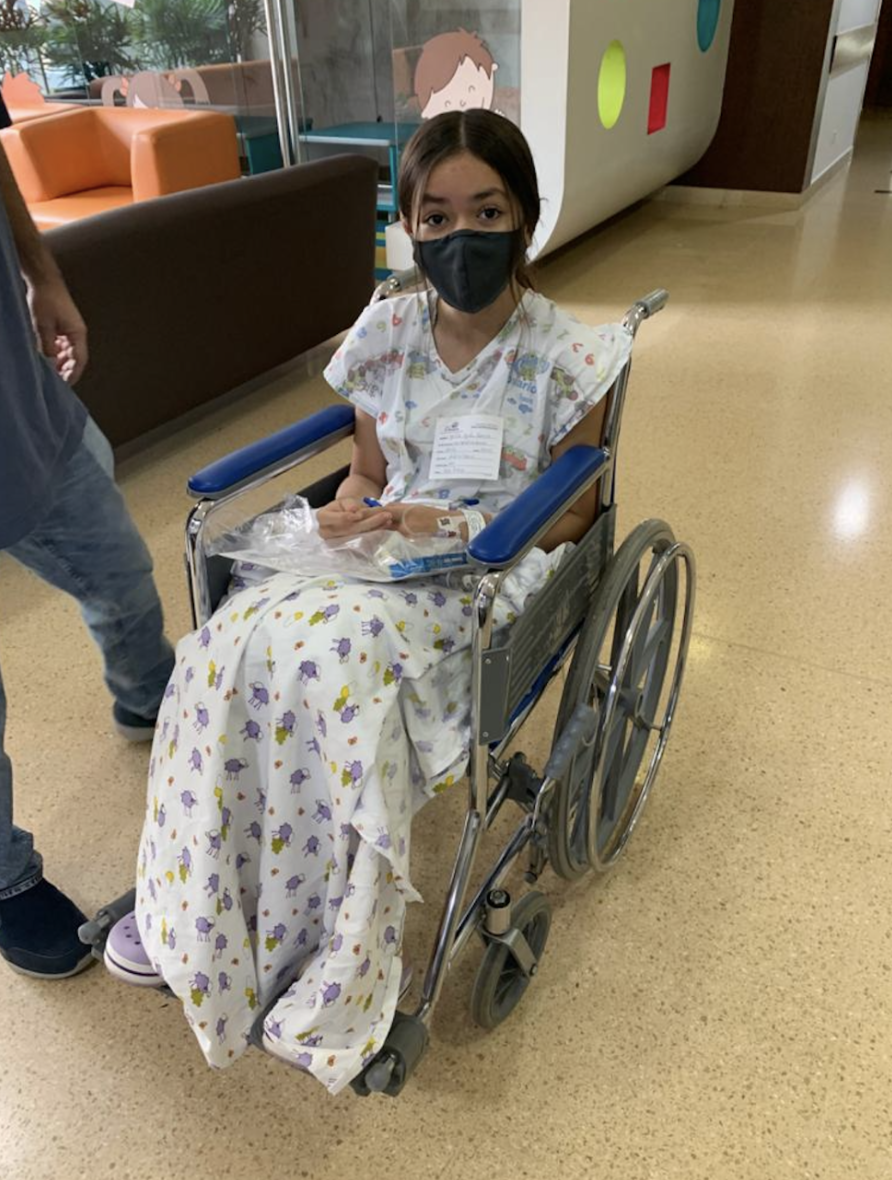The fluorescent lights above the hospital bed blurred as Matilda Orejuela, a Columbus school student, slowly opened her eyes. She expected to see her parents. Instead, she saw a crowded recovery room full of strangers waking from their own procedures. The pandemic had filled every room, every hallway, every corner of the hospital. Alone and tired from an appendectomy, she realized this night would be one she would never forget.
Matilda ‘s emergency unfolded at Clínica El Rosario, on November 6th, 2021, in Medellín. It was one of the hardest moments of the pandemic: hospitals were crowded, families had to stay apart, and fear filled every waiting room. Her story is not only about the pain of surgery—it is about the emotional challenge of getting through it without the comfort of family nearby, and the discovery that resilience can grow even in the darkest, loneliest nights.
That day began like any other. In the morning, she ate a simple bowl of cereal before starting her schoolwork. A dull stomach ache followed her around, the kind of pain she thought might be something she ate. But it kept getting worse. “It started like a random day. I started feeling pain in my lower stomach… but the pain wouldn’t leave,” said Matilda Orejuela. At first, her parents, Lina and Santiago, hesitated to take her to the hospital because of the risk of COVID-19 exposure. Eventually, her mother realized they couldn’t wait any longer and drove her to the ER.
When she finally entered Clínica El Rosario in late 2020, fear set in—not just the fear of surgery, but of the world around her. “It was really scary because hospitals already felt very dangerous from COVID, and I was also scared for the surgery,” said Matilda. She expected to wake from anesthesia with her parents by her side. Instead, she found herself surrounded by strangers. The loneliness of that moment, she admitted, was harder than the physical pain. Around her, she heard hurried footsteps, the beeping of monitors, and patients crying in nearby rooms, sounds that made the experience even more overwhelming.
The scariest part for Matilda and her family wasn’t just the operation itself; it was the uncertainty. Doctors told her mother the procedure would take thirty minutes. Instead, it lasted three long hours. “It was the thought of something going wrong in surgery and not having everyone by my side,” she recalled. The extended wait left her parents in tears and Matilda terrified that something had gone wrong.
Beyond that, the fear of infection weighed on her mind. “I was also worried about catching COVID-19 in the hospital. It was terrible,” she said. Even so, her family’s support became essential during recovery. Her mother stayed by her side at night, making sure she had everything she needed, and constant encouragement reminded her she was not alone. Her recovery lasted about two weeks, during which she slowly regained strength, physically and emotionally.
Looking back, Matilda believes the experience taught her something she never expected. “I learned that I’m stronger than I thought. The surgery is really painful, but I handled that pain really well,” she said. For her, the biggest lesson was realizing that fear doesn’t have to control her. If she takes things step by step, she can face even the hardest challenges.
Matilda’s story shows how the pandemic reshaped even ordinary medical emergencies. For thousands of patients worldwide, hospitals weren’t just places of healing; they became spaces marked by fear, isolation, and risk. Her battle with appendicitis underscores how resilience, family support, and inner strength can carry someone through, even when the world outside feels unsafe.
Today, when Matilda reflects on that night, it feels almost unreal, like a dream she survived. But the lesson remains: health is fragile, family is essential, and she is stronger than she ever believed.



